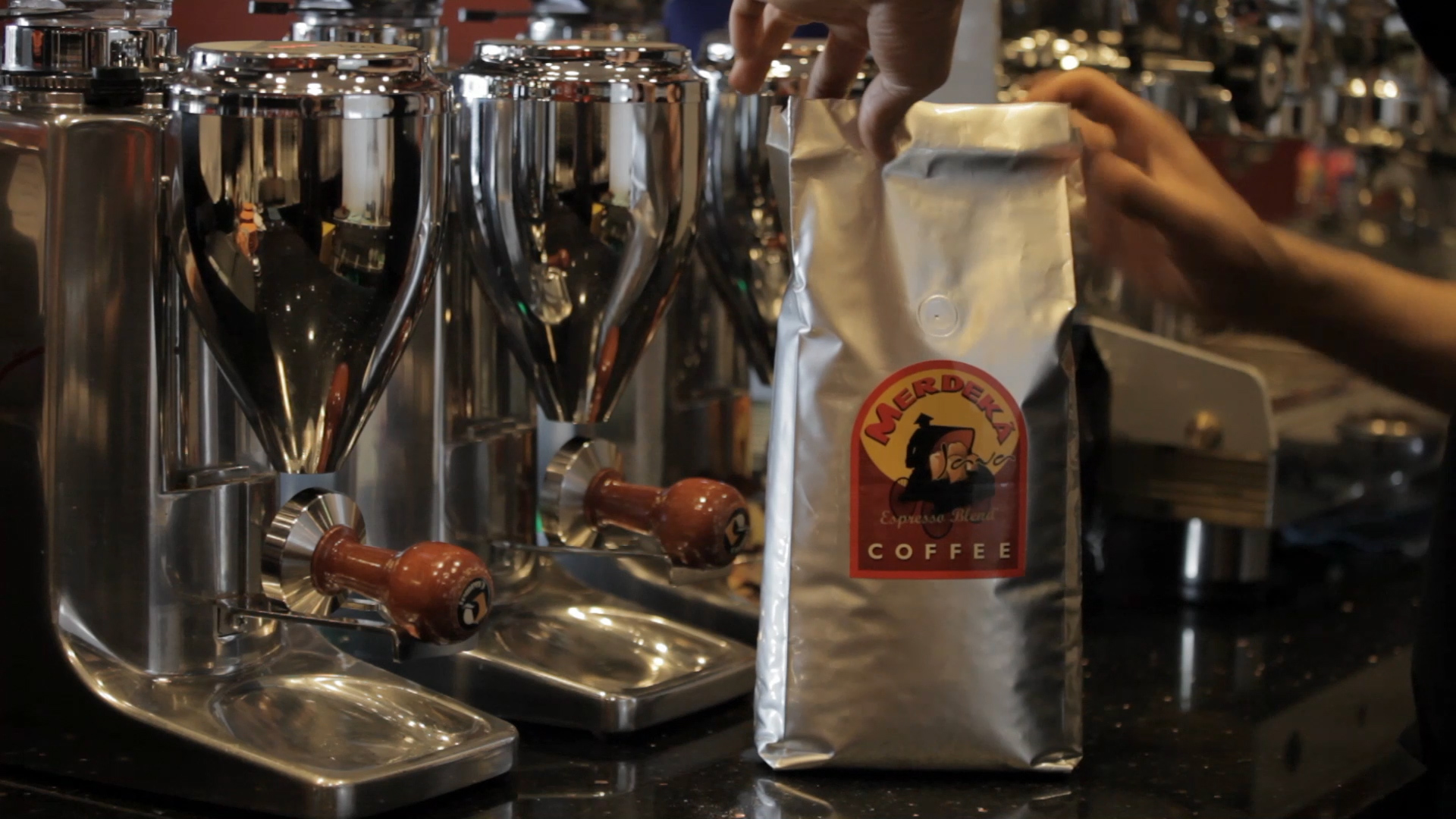Well there are different caterogies of cafes and restaurants in Jakarta. Many of the bigger chains that market themselves as coffee specialists do not roast their coffee in Jakarta, or even in Indonesia! This means that the coffee is not fresh. Coffee is best drunk within a week of the time it is roasted. If ours is not sold within this time frame, into the bin it goes! Other cafes do roast their own coffee- but we believe that our roasting process as well as the skill of our roast-master gives us the cutting edge.
Q: What is your favourite Indonesian coffee, and why?
We love all of the coffees we roast, but if we had to pick just one it would be our Java Village bean. This was one of the first great beans we discovered, and because of that it will always have a special place in our hearts. The bean is grown at altitude in a village in central java. The bean is wet processed, which is rare for a small cooperative. We love this bean roasted into the second crack. Its mild with a nice chocolate flavour with a hint of spice
Q: I have noticed that sometimes you do not carry stock of my favourite roasted coffee. Why is this?
Arabica Coffee in many ways is a crop similar to grapes used in making wine. Every year a combination of factors can markedly change the character of the green bean which in turn can change the characteristics of the roasted bean in the cup. We love Indonesian coffee and therefore we have strict standards about what beans we do or do not sell. If it is a bad crop year in one part of Indonesia, and the bean does not meet our standards in the cup- we simply will not stock that arabica for the sake of having it on our product list.
Q: What is the coffee type nown as Liberica?
Liberica is a coffee type that originated in Liberia, West Africa. The coffee tree grows up to 9 metres in hight, producing cherries that are larger than the cherries found on Arabica trees. The coffee was brought to Indonesia to replace the Arabica trees killed by the coffee rust disease at the end of the 19th Century. The coffee itself has more in common, cupping wise, with Robusta. It is still found in parts of Central and East Java today. It is known as Baroko in the Philippines where it is a major crop.
Q: I have heard many stories about this "Kopi Luwak", what exactly is it and why is it so famous?
Kopi Luwak does indeed exist. It is coffee cherries that have been eaten by the Indonesian palm civet, gone through its digestive system and been deposited out the other end. The civet (Luwak or Musang) is these days rare in Java but still reasonably common in Sumatra- there for most REAL Kopi Luwak comes from Sumatra. The green beans are cleaned by hand once the Luwak poop is collected. The real deal can sell for over $300 a kg. One of our friends, Prof Massimo in Canada, is the world recognized expert on identifying whether Kopi Luwak is real or a fraud. This is done through colour spectrum testing of the beans. The enzymes left by the digestive process of the Luwak leave a distinctive pattern on the surface of the bean. Why is it so famous? Well... like anything the rarity of the coffee makes it unique. Whether it is more delicious or flavoursome than other Indonesian coffees is debatable!




